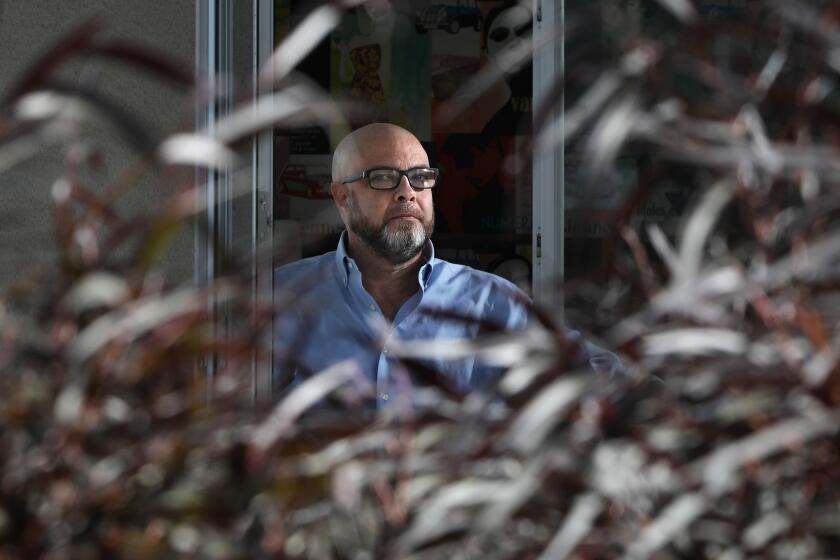California lawmakers kill bill aimed at making social media safer for young people

California lawmakers on Friday killed a bill that would hold social media platforms liable for promoting harmful content about eating disorders, self-harm and drugs.
Senate Bill 680, which was opposed by tech companies, died in the powerful Assembly Appropriations Committee as part of a marathon hearing where lawmakers culled hundreds of bills without public debate.
“There is little doubt that social media platforms employ algorithms and design features that experts across the nation agree are contributing to harming our children,” Sen. Nancy Skinner (D-Berkeley), who wrote SB 680, said in a statement. “These companies have the power to adjust their platforms to limit this harm, yet to date we’ve seen them take no meaningful action.”
The death of the legislation underscores the uphill battle California lawmakers face as they try to make social media safer for young people. Tech industry organizations such as TechNet and NetChoice, whose members include Facebook parent company Meta, Snap and TikTok, aggressively lobbied against SB 680. Opponents said the bill would run afoul of federal law and the 1st Amendment because online platforms would end up removing more lawful speech as they err on the side of caution to avoid being sued.
Tech industry groups opposed a similar social media bill last year and are trying to block another by filing a lawsuit after it was signed into law.
California lawmakers on Thursday rejected a proposal that could have forced some popular social media platforms such as Instagram and TikTok to pay fines for using features they know can harm children.
California lawmakers, Skinner said, shouldn’t give up on their “fight to protect our kids.”
Another bill, Assembly Bill 1394, that focused more narrowly on combating child sexual abuse material on social media on Friday cleared the Senate Appropriations Committee and advanced to the Senate floor for consideration. The legislation would require social media companies to give California users a way to report child sexual abuse material they’re depicted in. The platform would be required to permanently block the material from being viewed. If the company failed to do so, it would be liable for damages.
“Ensuring children and teens have a safe experience online is a goal we share with the authors of SB 680 and AB 1394,” said Dylan Hoffman, TechNet’s executive director for California and the Southwest. “Unfortunately, as drafted, SB 680, would have done little to protect children from harmful content and would have resulted in fewer online spaces for teens.”
Ahead of Friday’s Senate Appropriations Committee hearing, child safety advocates expressed outrage over the changes to AB 1394 being pushed by the tech industry. The amendments, backed by TechNet, would give online platforms another way to avoid liability for failing to combat child sexual abuse materials, according to children’s advocacy groups Common Sense Media and the Children’s Advocacy Institute.
“They are basically trying to keep a golden fence around tech companies in spite of evidence that proves that their products are deeply harming children,” said Jim Steyer, CEO of Common Sense Media in an interview before the hearing. “It is absolutely shameful and disgusting what they’re doing.”
On Wednesday, the child’s advocacy group called on TechNet’s members to leave the organization or denounce the group’s behavior.
From the sale of deadly drugs to child sexual abuse images, social media can pose dangers. Lawmakers are targeting the platform’s algorithms, designs and features amid calls to hold tech platforms accountable for safety risks.
TechNet President and CEO Linda Moore on Thursday sent a letter to Steyer, saying it was working in good faith with the bill’s author Assemblymember Buffy Wicks (D-Oakland) to make changes to the bill because the legislation could be challenged in court.
The bill advanced without amendments but Wick’s office said potential changes are still being negotiated. AB 1394 also prohibits social media companies from “knowingly facilitating, aiding, or abetting commercial sexual exploitation.”
A court would be required to award damages between $1 million and $4 million for each act of exploitation that the social media platform “facilitated, aided, or abetted.” Companies would be able to avoid liability if they conducted quarterly audits of their designs, algorithms, features and practices and correct any potentially harmful impacts.
“I am confident that this bill will make it to the Governor’s desk and, when signed, will be the strongest law in the nation aimed at combating child sex abuse material,“ Wicks said in a statement.
More to Read
Get the L.A. Times Politics newsletter
Deeply reported insights into legislation, politics and policy from Sacramento, Washington and beyond. In your inbox three times per week.
You may occasionally receive promotional content from the Los Angeles Times.













